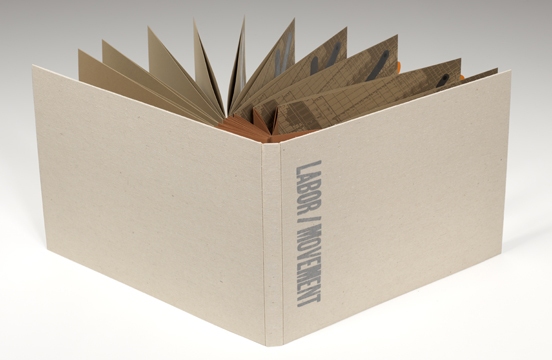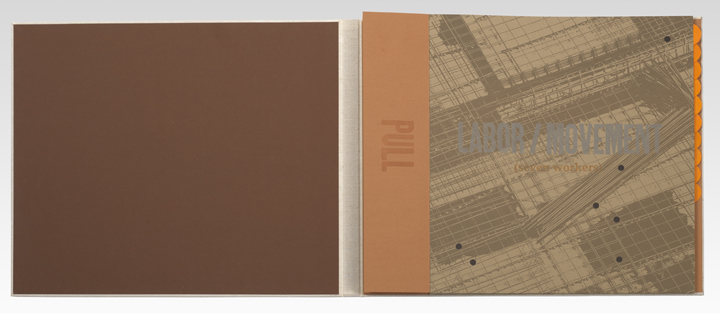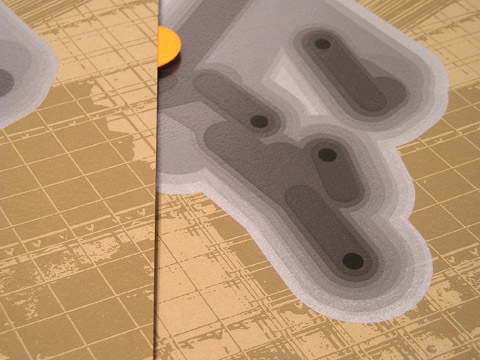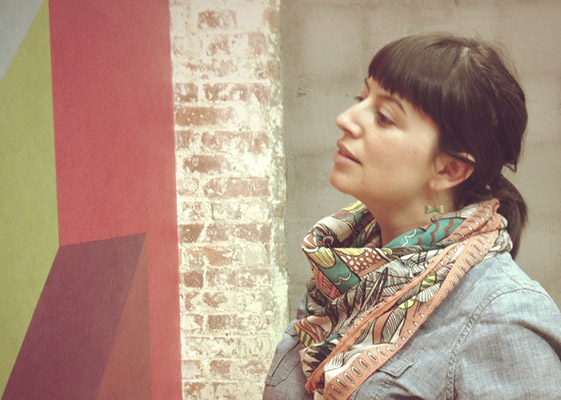Labor/Movement (seven workers) was printed and bound by Amy Borezo in 2012 in an edition of 25. Bound on an unsupported concertina binding with folios pamphlet-sewn to the peaks of the concertina. The folios were then sealed along the fore edge. The text is nestled inside a cloth covered case with only the back hinge of the concertina adhered to the back of the case. This constructions allows the reader/viewer to pull out the first flap of the concertina, expanding all of the pleats fully and exposing a portion of each page to be viewed simultaneously (as shown in the image below).
I want to focus primarily on the structure of this book, which engages the concept of the text in a very subtle and beautiful way. The text and imagery is developed around various forms of movement; the pages themselves can be turned and expanded in various ways that mirror the ideas within the text. How did you develop the structure for this book? Did you work through several models before finalizing the look?
I made another book many years ago with this structure, which I believe is based on a design by Keith Smith. I love how the book expands in a very physical way. Even the sound that the pages make when they slide on top of each other is very satisfying. This book has to be performed by the reader/viewer, which ties in nicely with the content of the work. It asks the reader/viewer to be aware of her actions and body in space, and this ask is reiterated in the text.
When the book is fully extended, you can see a portion of each page simultaneously to each of the other pages. I feel that this is a very cinematic way of experiencing the book, similar to stop-action animation. The series of images in Labor/Movement show a pattern of movement over time, and when you see a portion of each image overlapping the next, the connection between the images is much more fluid than if you were seeing one whole image and then turning the page to see the next whole image. I don’t think I considered any other structure, but I did make a few dummies to make sure it would function well.
The structure also allows the book to be read in many different ways. It can also be opened and paged through like a traditional codex. I like to make artwork that is multi-layered in form and content.




